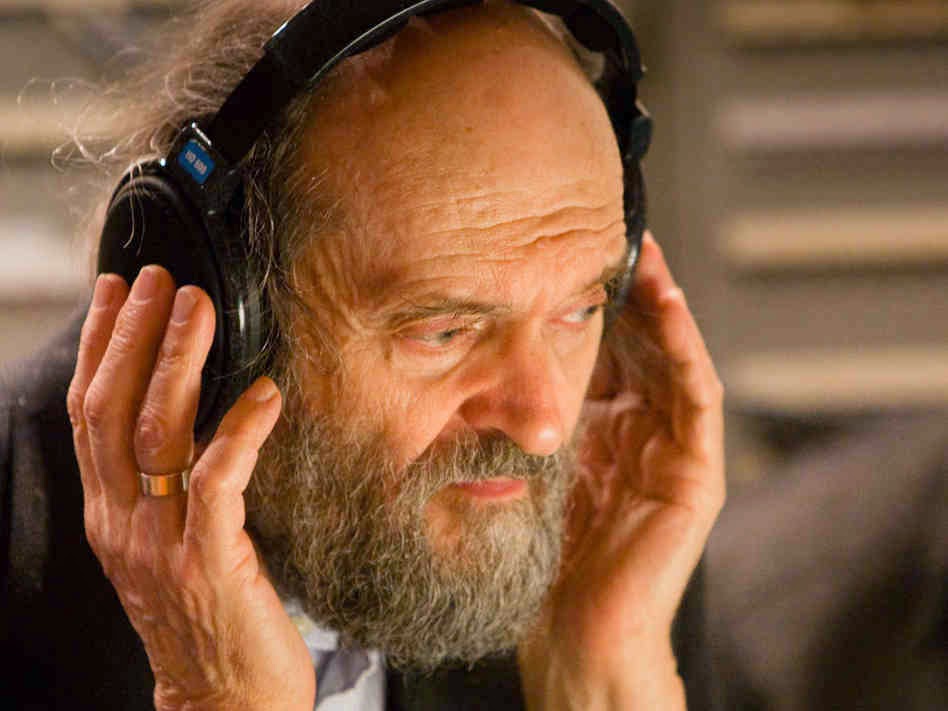Spring Symphonies: 17/60 Pärt: Symphony No 4 "Los Angeles"
 |
| Pic: Peter Adamik |
This symphony belongs to a different age maybe even a different world. It certainly moves at a very different pace from everything I’ve covered so far. If it were not for it’s origins I suspect it would have been marketed by a man with a whitened smile and a share suit as “New Age Music” to go with his hypnosis course. It is hypnotic and could I think be rightly said to summon a new age or, equally reminds us of a very old one.
Arvo Pärt, commissioned by the Los Angeles Philharmonic Orchestra to write a symphony which was premiered in January 2009 some 37 years after his third symphony. Its topic is angels, like Rautavaara Symphony No 7. It is scored for strings, harp, timpani lots of percussion. It’s in three movements:
First Movement: Con Sublimata (With Sublimity)
First Movement: Con Sublimata (With Sublimity)
Second Movement: Affannoso (Breathless, labored)
Third Movement: Deciso (Decided)
It is dedicated to Mikhail Khodorkovsky who had the temerity to challenge president Putin and it is suspected was put in prison for his efforts.
The title is “Los Angeles” or literally “The Angels” - Angels are everywhere said Pärt at the end of an interview about this work - for him they are a reality and he said we should all think about our guardian angels.
I’ve already done a post “walking” through this symphony which is here if you’d like to read it.
In this posting I’d like to reflect on it a little further.
The symphony has had, according to Universal Edition (Pärt’s publisher), 86 performances including its premiere. That’s a rare thing nowadays and it is not an easy or popular work. I think this is partly because Pärt is now a respected and much loved composer and because there is now an acceptance that his kind of music may hold more than we first thought.
Its a short step back in time to the surprising popularity of Gorecki’s Third symphony which sold more than a million recordings. Its direct utterance was underscored with orchestral lines which were simple to untangle even if there weren’t always harmonically easy. It was as though the record buying public had found a comfortable limit to the growing complexity of classical music and was looking for a legitimate compromise that didn’t involve a film score or a earnest rock musician.
That’s not to say Pärt found that and went that way too. For Pärt the process has been about a slow anti synthesis from full score for a big orchestra (plus rubber ducks in one case) to the leanest of forces possible to realise the sounds he seeks. The Fourth Symphony was born from a part of his long and exquisite (also perhaps painfully direct) vocal cycle “Kanon Pokajanon”. The symphony orchestra has been stripped down and so has the variety of utterance. There is - for example - a real difference between the type of bells used in the first and second movements of this symphony. That difference is important in the sparse landscape of the work and obviously it is the composer’s will. At every turn Pärt is seeking to get us to listen to this most simple of sounds - often only chords drawn with strings and bells and drums. And it is the juxtaposition, progress and flow of these chords which will show us his way.
You might say all of this is boring - and at first it might be if you are wishing for something more. But if we are glad of what the composer gives us and seek to share with him the full richness of the work, then we will have a very different experience than say a Mahler symphony. As I have listened to this work over time, and return to it again after a year or so away, I find myself reacting quite emotionally to the vision the symphony paints. Angels comfort and angels agonise with us. The world is full of people making choices and guardian angels acting on their behalf. I’m put in mind of Julian of Norwich “All will be well” and slightly nervous about a symphony which can at times suggest that even with a spiritual guide sometimes it will not be well. But i think for Pärt, all our suffering is in the way of things, to be endured for a higher purpose. I can’t share that view. But I do think a piece that offers us time, space and ideas which get us to face the consequences of stripping all our fancy ways back to a core (of some sort) is a valuable thing. Its severe and even stark beauty carry a message of comfort and it is well worth hearing and pondering carefully as an august meditation from one of our finest living composers.
Here is a recording of the UK premiere - Philharmonia Orchestra is conducted by Esa Pekka Salonen


Comments